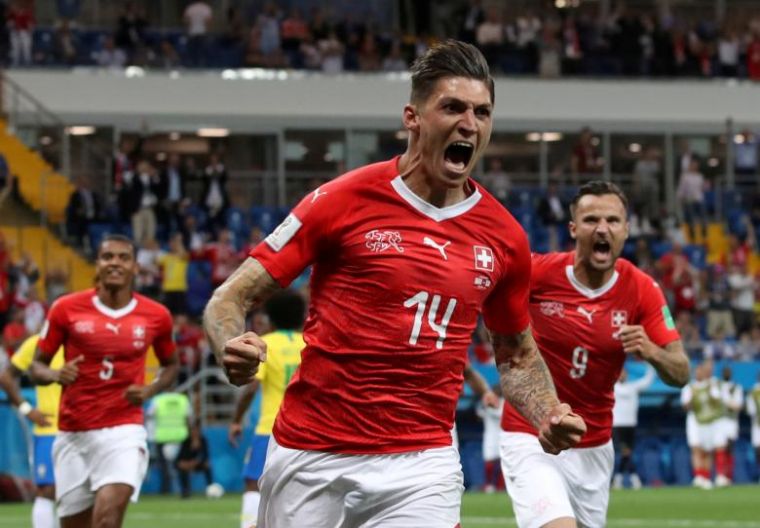Violence and the World Cup: The women for whom football is literally a matter of life and death
Football: to be honest, I can take it or leave it. I'm in a minority, I know, judging by the conversations I seem to hear, especially now it's the World Cup. England are playing tonight, if you haven't heard, and it's a big deal. I'll probably watch it glancing up from a book occasionally, but I won't get that heart-thumping, breath-stopping, sick-making tension that afflicts people I know.

It afflicts some people even worse. I'm talking about the partners of violent men. A Lancaster University study entitled Can the FIFA world cup football (soccer) tournament be associated with an increase in domestic abuse? answers the question with an unqualified 'yes'. It found two statistically significant trends. A match day trend showed the risk of domestic abuse rose by 26 per cent when the English national team won or drew, and by 38 per cent when the national team lost. Second, there was a trend: reported domestic abuse incidents increased in frequency with each new tournament (2002, 2004, 2010).
Why? Well, football, violence and masculinity have always gone together (ie since the 13th century); it's a very aggressive game, and that kind of spills over into real life; and then of course there's alcohol.
That's one kind of 'why'. The other kind of 'why' is that it's what men do to women. In all too many men, there is an assumption of power and authority over women that – bad in itself as it is – overbalances into an assumption that they can do pretty much what they like to them. Hence the need for an ban on 'upskirting', so disgracefully torpedoed in the UK parliament by Sir Christopher Chope. Hence the story on the BBC's website of a female magazine editor who was asked, 'How much for the night?' at a media event. Hence, since we mention the BBC, the row about the gender pay gap in that venerable institution. Hence the whole #metoo thing, which blew the lid off years of concealment and connivance.
And hence an increasing degree of self-awareness – aided by initiatives like Project 3:28 – about how this plays out in church. It's true that the sort of blatant hyper-masculinity characterised by excessive alcohol and fighting is generally absent. But the root of violence against women – the assumption that men have authority over them because of their gender – is all too often still there. As it happens, Ian Paul on his Psephizo blog today, writing about 1 Timothy 2, lists a few examples of the dreadful things revered Christian figures have said about women.
John Calvin, for instance, says: 'Women by nature (that is by the ordinary law of God) are born to obey, for all wise men have always rejected gunaikokratian, the government of women, as an unnatural monstrosity...the true order of nature prescribed by God lays down that the woman should be subject to the man.'
Or there's English Methodist Adam Clarke: 'God designed that he (the man) should have the pre-eminence ... the structure of woman plainly proves that she was never designed for those exertions required in public life. In this is the chief part of the natural inferiority of woman.'
Or here's Charles Hodge: 'Man's superiority...enables and entitles him to command... This superiority of the man is...taught in Scripture, founded in nature and proved by all experience.'
These early complementarians are rather an embarrassment to their modern successors. But they are unfettered by any namby-pamby hesitation about causing offence, and that makes them honest: they thought men were better than women, and said so.
Asking about one kind of 'why' violence against women increases during football tournaments is essential when it comes to doing something about it. But there's a deeper 'why' to be grappled with. It's much more important than football. It's about why men do what they do, and that needs a fundamental reformation of the spirit. In Christian terms, it requires repentance from that deeply unfashionable word, sin.
And in the meantime, Christians who enjoy the game should try to spare a thought for those for whom winning or losing is literally a matter of life and death.
Follow Mark Woods on Twitter: @RevMarkWoods











